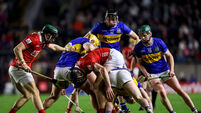Work starts on Saddam war crimes tribunal
Iraq’s US-appointed Governing Council has met for the first time to look into ways of appointing judges to a new war crimes tribunal that could try Saddam Hussein.
One council member, Adnan Pachachi, said yesterday Iraq’s tribunal would welcome foreign judges “if we feel it’s necessary”.














